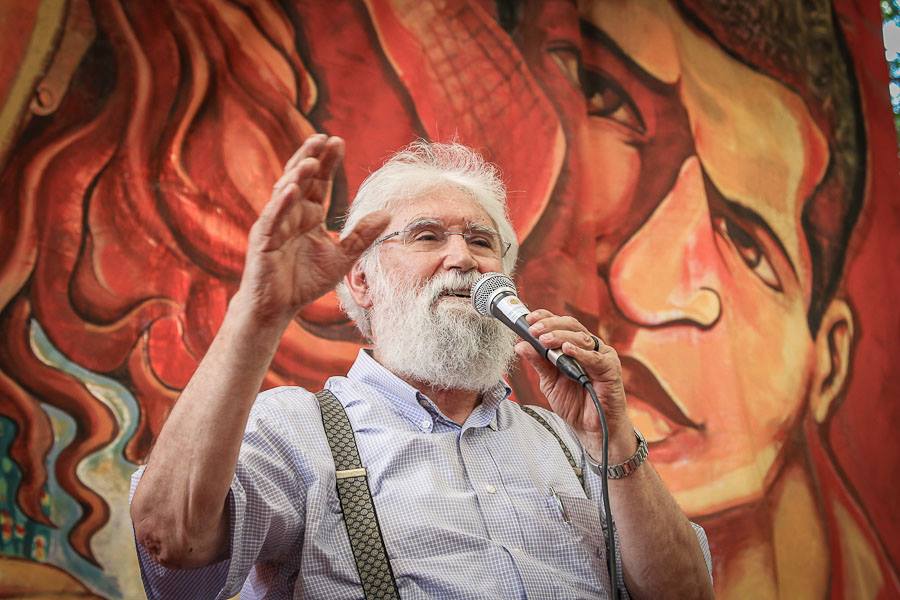Leonardo Boff, the Brazilian theologian who was one of the founders of liberation theology, celebrated his 80th birthday on 14 December.
The main celebration was a party organised by Boff’s publishers, Vozes. In a speech to the gathering, Boff said he was very much afraid that he might make it to 90. At his last check-up his doctor had told him all the results were fine, and asked: "Would you like to places swap with me?"
Boff described recent correspondence with Pope Francis, who had said he continued to read Boff’s works. He reminisced about the interview he had in 1985 with the then Cardinal Ratzinger after the publication of his book "Church, Charisma and Power".
At the beginning of the proceedings he was required to make a profession of faith. When Ratzinger asked him if he believed Jesus was God, he had said "no".
"What?" exclaimed Ratzinger.
Boff, who still writes regular blogs commenting on socio-political issues of the day, most recently the elections in Brazil, replied: "He is the Son of God. If he is God, he could be the Holy Spirit or the Father."
"Quite right," Ratzinger had replied: "One can see that you studied in Germany."
After the interview Boff was condemned to "obsequious silence" for a year.
"I never talked as much as in that year," Boff commented, "but it was in private". Among the greetings Boff received was one from Gustavo Gutiérrez, the Peruvian theologian sometimes called "the father of liberation theology". Gutiérrez said he looked forward to sending Boff greetings for his 90th birthday, when the Peruvian would be 100.
The continuing relevance of Boff's ecclesiology was asserted in September this year by Christine Schenk.
Writing in the National Catholic Reporter in September this year she said that Boff’s 1981 book “Church: Charism and Power” could offer a “road map” out of the current crisis of ecclesiastical credibility over clerical sex abuse.
“Boff dared to suggest a new model of church governance. In his model, charism is the organising principle, rather than the monarchical structures we now have. He points to St Paul, who saw charism as a concrete function or service that each Christian exercised on behalf of everyone in the community,” Schenk wrote, going on to quote Boff’s observation, “This model of Christian life is very different from the one in which the hierarchy takes all sacred power and all the means of religious production, saying in effect, 'You will listen obey, ask no questions, and do as we say.' "
The function of hierarchy according to Boff is to "make way for unity and harmony among the various services" (charisms) exercised by the faithful. “It is not a leap to say that in this model, leaders (priests, deacons and bishops) would be selected based on who has the gifts for the office, not on the basis of gender or power,” Schenk writes.



 Loading ...
Loading ...